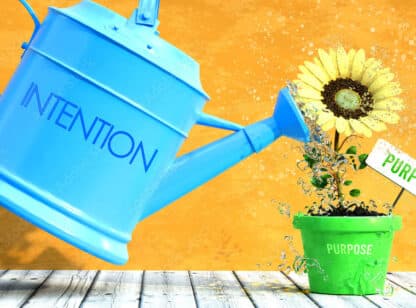
The Beamer books keep lessons fresh for Children’s Program alumni
The Hazelden Betty Ford Center is world renowned for the significant work they do with those dealing with addiction. But what about the many young children who struggle with an addictive parent or loved one in the family? There are thousands of these young victims for which Betty Ford Center Children’s Program also provides support, and when they graduate from the program, Beamer’s light helps lead the way.
According to the center, more than one in four children in our country today has a loved one struggling with drugs or alcohol. With children’s programs in the Coachella Valley; Irving, Texas; and Aurora, Colorado, they work with over 1,200 children and their families each year teaching these core values to help kids understand the disease and their own feelings: 1) you are not alone; 2) it is not your fault; 3) find safe people and places in your life where you can talk about what’s happening and what you are feeling.
And true to Betty Ford’s initial vision, no child is ever turned away due to their inability to pay.
In 2003, a prevention researcher was retained to see how the children’s program was working. It was determined that while this 3-4 day program was very transformative, the message wasn’t being reinforced once the kids left. “This was brilliant criticism which we embraced,” says Children’s Program Director Jerry Moe. “You can teach kids things once, but if they don’t get ‘booster shots’ of the information, they will lose the essence of what they learn in the program.”
Shortly thereafter, the late Lois Horvitz, a board member at the time, introduced Moe to Tom Drennon, the creative mind behind many famous album covers in the 70s (Kansas, REO Speedwagon). Drennon had created the character of Beamer and wasn’t sure what to do with it. Lois suggested that the two of them create a series of books for alumni children that could be sent to them in the mail one by one, and Beamer’s World was created.
“All of the characters in the Beamer books are light bulbs and the key to the story is that their feelings appear in different colors – when Beamer is angry he turns red; when down he turns blue; happy, he turns yellow; when scared he is white; and when guilty he is green,” explains Moe. They also decided to end each book with a ‘cliff hanger’ to be continued. “The best thing about that,” adds Moe, “is that kids will call me and say, ‘I hate you! Tell me what is going to happen next!’ and I tell them they have to wait until the next book arrives.
Created for 12-14 year old alumni, the books feature Beamer and his parents who are both alcoholics. “We talk about what treatment would look like; Dad ends up and jail and Beamer goes to live with his grandparents for a while, so it is trying to recreate the world of so many of the boys and girls we work with. And there is this creepy looking guy who is the disease of addiction because we are trying to teach kids to separate the person they love from the disease that takes control of their lives.”
Moe and Drennon came up with 12 stories arranged in a series of 4 books with 3 chapters each. The characters and story lines even have input from some of the youth in the program. “I formed a focus group of boys and girls to whom I would pitch ideas. Little kids started emailing and calling me with ideas. When a child would recommend something and then see it in the book, it meant the world.”
The project is ongoing, with Drennon and Moe just wrapping up their 13th book. “We are now recreating the group experience that kids have in our group programs, by building on the other kids in the book, Twinkle, Jamal, and Carlos, to see how all the kids are dealing with the challenges in their families in a hopeful way.”
They are also working with Big Bad Tomato, a creative agency specializing in entertainment and education-based digital media for kids, to develop a cartoon series based on the books. A website (mybeamersworld.com) is available to children who have gone through the program.
“Beamer is more popular than my wildest dream,” says Moe. “With children, you always want to help them be excited about things and this is a tough topic – it’s a painful issue that many children face, and Beamer excites them. He has truly become our mascot.”
Their challenge is that the books rely on the fact that the kids have already received basic education on the subject. “Hopefully we will make him available to all kids who deal with addiction issues, and we need to build the bridge to get him there. We do good work here, but there are millions more kids who need us, so how do we take Beamer out into the world?”
For more information contact the Hazelden Betty Ford Center at (866) 831.5700 or visit www.hazeldenbettyford.org.













































Comments (3)
How can we watch on an apple ipad?!
What are you looking to watch, Linda?
Lauren
Hello. I had a Beamer book and I gave it away m. How do I get more? Thank you so much for this wonderful resource.